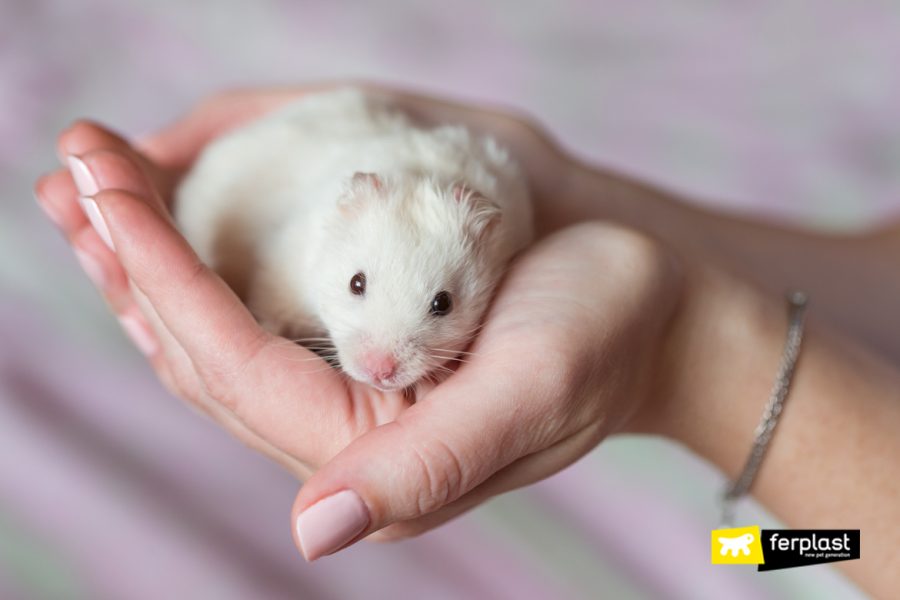The hamster is a hyperactive animal that loves wide spaces. Therefore, his house must take this need into account.
Although he is now defined as a pet, the hamster is a nocturnal animal that needs a suitable habitat for his growth. Let’s take a look at what a pet hamster must have in his house.
Hamster characteristics
Hamsters belong to the rodent family. They have a small, compact, slightly rounded body and thick fur. They have large ears and dark, protruding eyes. Their length can vary from 7 to 20 cm.
Their appearance is particularly funny because of their cheek pockets: folds of skin that start at the incisors and end at the outer side of the jaw. These pockets are used to store and transport food.
This characteristic is due to the origins of these animals. Hamsters come from deserted places and from the cold Russian steppes where food is often scarce and has to be searched for.
The colour of the hamster’s coat, on the other hand, can vary and depends on the breed.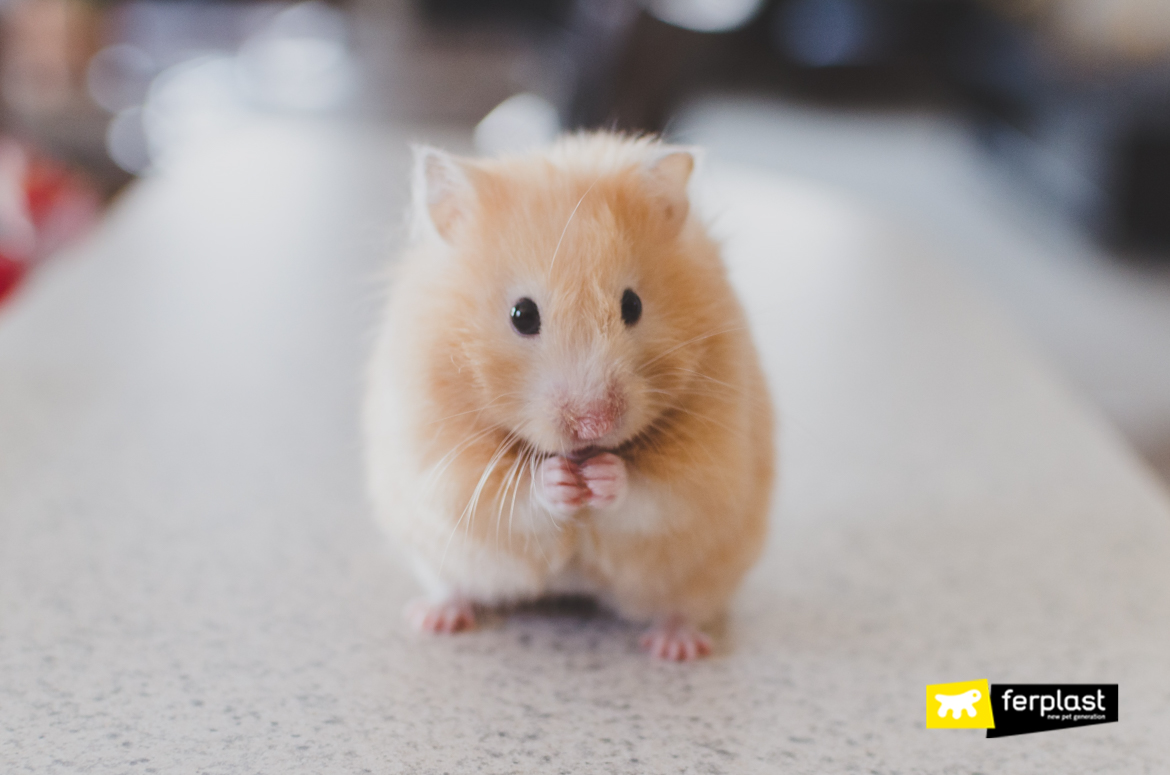
Differences between the wild hamster and the pet hamster
A fundamental difference between the wild hamster and the pet hamster is that the former hibernates. The pet hamster, on the other hand, lives indoors and is not affected by the change of season and the cold winter temperatures.
Another important difference lies in the diet. Whereas domestic hamsters are herbivores, wild hamsters are small predators that also eat other animals.
From a behavioral point of view, the pet hamster is obviously more docile and affectionate.
The hamster’s house
Although the pet hamster is a pet, his needs and his active and curious nature must be taken into account when preparing the habitat.
The choice of cage
Hamsters like large spaces, so their cage should be of an appropriate size. They are hyperactive animals, especially at night, curious and keen to explore. The den must be spacious and comfortable, to prevent the hamster from trying to escape. The presence of floors, tunnels and toys is a great way to entertain them and simulate their natural habitat.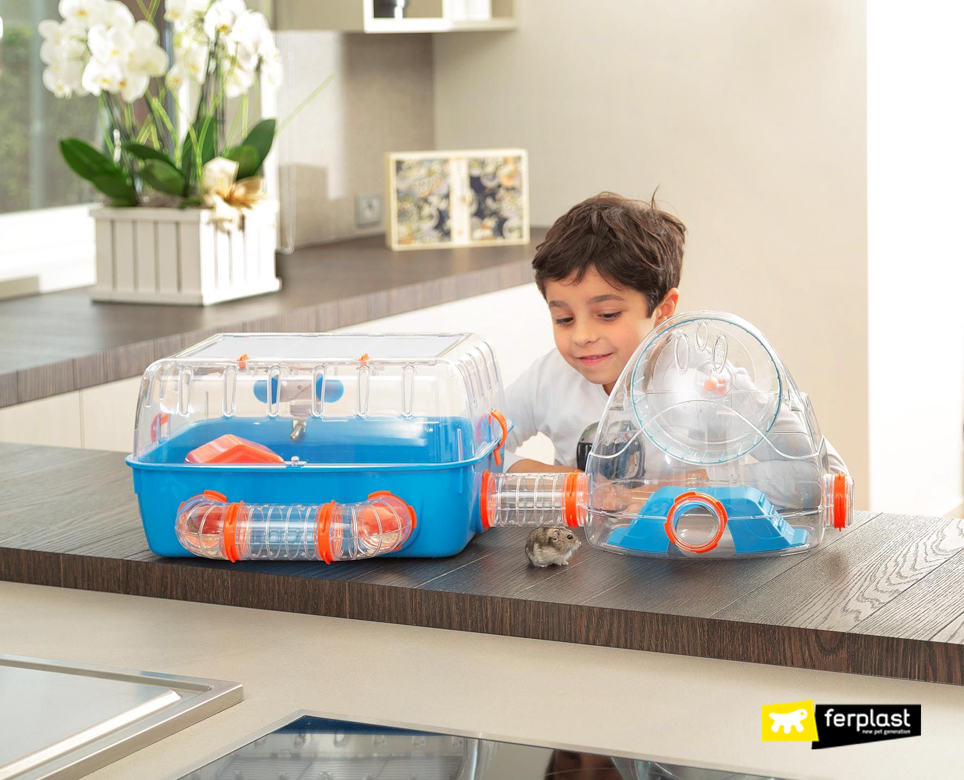
Laura by Ferplast, for example, is a two-storey modular cage with a plastic base and a painted wire mesh structure. It is 46 cm wide, 29.5 cm deep and 37.5 cm high.
The cage is equipped with accessories for small rodents, such as a plastic wheel and transparent tubes, allowing your hamster to run around and have fun. It is also equipped with a feeder and a drinking bottle, as well as a handy plastic shelf where you can put the den and create a comfortable relax area.
The cage is ideal as a hamster house, as it allows to connect other housing modules and increase the space available to the animal.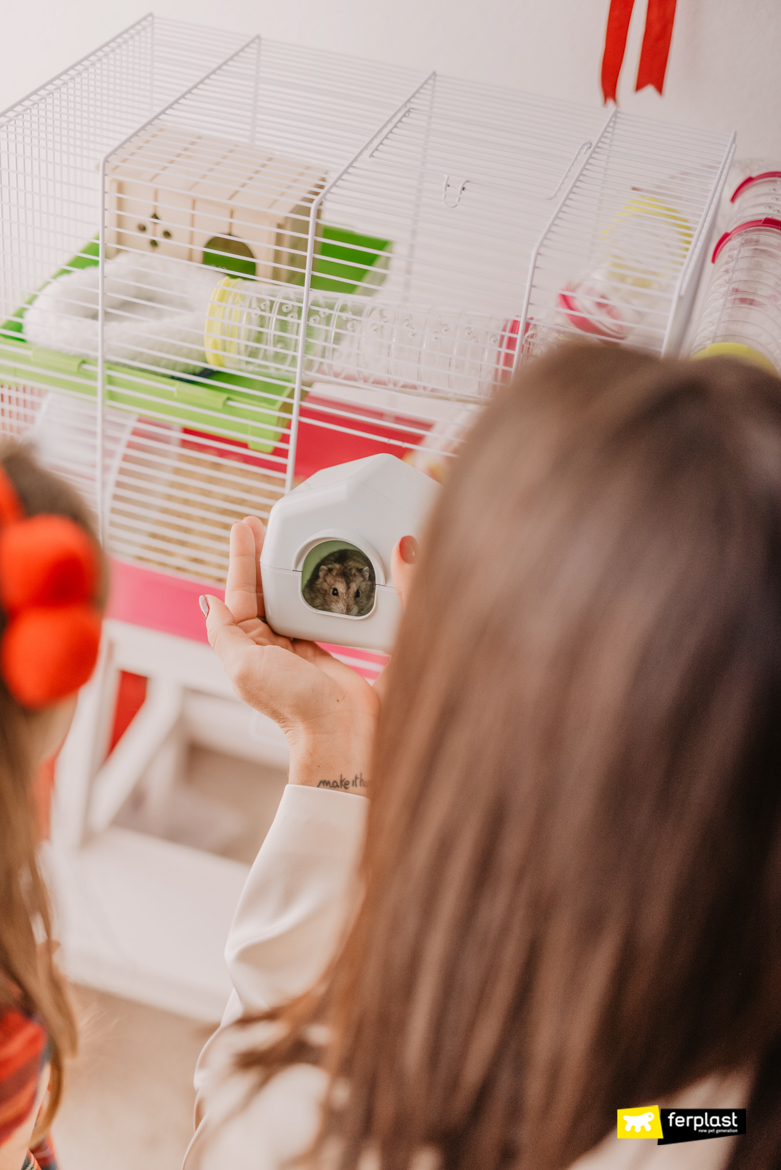
Choosing the hutch and accessories
In addition to the classic plastic playhouse, Isba, you can also choose a playhouse such as Sin, made of FSC-certified wood coming from sustainable managed forests and other controlled sources. Inside, we can place a soft double-sided bed with a plush side.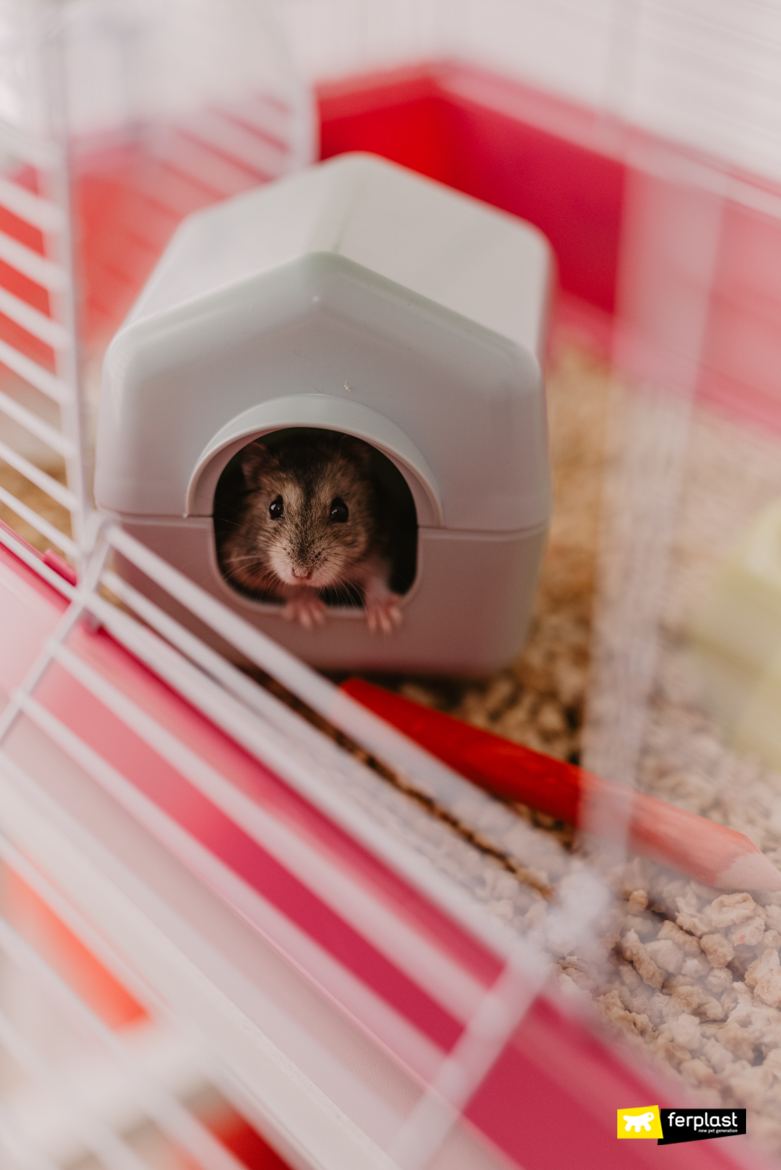
This animal is as small as he is lively. What must never be lacking in his house is the space because he loves to move around, browse and have fun.

